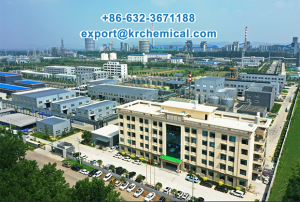An ethanol corrosion inhibitor is a chemical compound added to ethanol fuels to protect metal surfaces from corrosion. Ethanol is widely used as a fuel or fuel additive, particularly in blends with gasoline, such as E10 (10% ethanol, 90% gasoline) and E85 (85% ethanol, 15% gasoline). While ethanol has several benefits, including reduced emissions and renewable sourcing, it can cause corrosion in fuel systems, particularly in older engines and storage tanks not designed to handle ethanol-blended fuels.
Reasons for Corrosion in Ethanol Fuels
- Water Absorption:
- Ethanol is hygroscopic, meaning it absorbs water from the environment. Water can lead to phase separation and promote corrosion.
- Organic Acid Formation:
- Ethanol can degrade over time, forming organic acids that increase the corrosiveness of the fuel.
- Solvent Properties:
- Ethanol can dissolve certain materials and coatings in fuel systems, exposing bare metal surfaces to corrosion.
Types of Ethanol Corrosion Inhibitors
- Film-Forming Amines:
- Create a protective layer on metal surfaces to prevent direct contact with corrosive substances.
- Imidazolines:
- Form a hydrophobic film that repels water and prevents corrosion.
- Carboxylates:
- Stabilize the fuel and neutralize acidic components to reduce corrosivity.
- Phosphates and Phosphonates:
- Inhibit corrosion by forming a protective layer on metal surfaces and acting as oxygen scavengers.
Mechanisms of Action
- Protective Film Formation:
- Inhibitors adsorb onto metal surfaces, forming a thin, protective film that prevents corrosive agents from reaching the metal.
- Water Separation:
- Some inhibitors can help to separate water from ethanol, reducing the amount of water in contact with metal surfaces.
- Neutralization of Acids:
- Certain inhibitors neutralize organic acids formed during ethanol degradation, lowering the overall acidity of the fuel.
- Passivation:
- Inhibitors can promote the formation of a passive oxide layer on metal surfaces, which reduces the corrosion rate.
Application and Dosage
- Blending with Fuel:
- Ethanol corrosion inhibitors are typically blended directly with the ethanol fuel during production or before distribution.
- Concentration:
- The effective concentration of corrosion inhibitors can vary depending on the type of inhibitor, the ethanol blend, and the specific application. Manufacturers provide guidelines for the optimal dosage.
Benefits of Using Ethanol Corrosion Inhibitors
- Extended Equipment Life:
- Protects fuel system components from corrosion, reducing maintenance costs and extending the lifespan of engines and storage tanks.
- Improved Fuel Stability:
- Prevents the formation of corrosive acids and phase separation, maintaining fuel quality over time.
- Compatibility:
- Modern corrosion inhibitors are formulated to be compatible with a wide range of materials used in fuel systems, including metals and elastomers.
Conclusion
Ethanol corrosion inhibitors play a crucial role in protecting fuel systems from the corrosive effects of ethanol, ensuring the safe and efficient operation of engines and storage systems. By understanding the mechanisms of action and proper application methods, users can effectively mitigate the risks associated with ethanol use, enhancing the longevity and reliability of their equipment.

